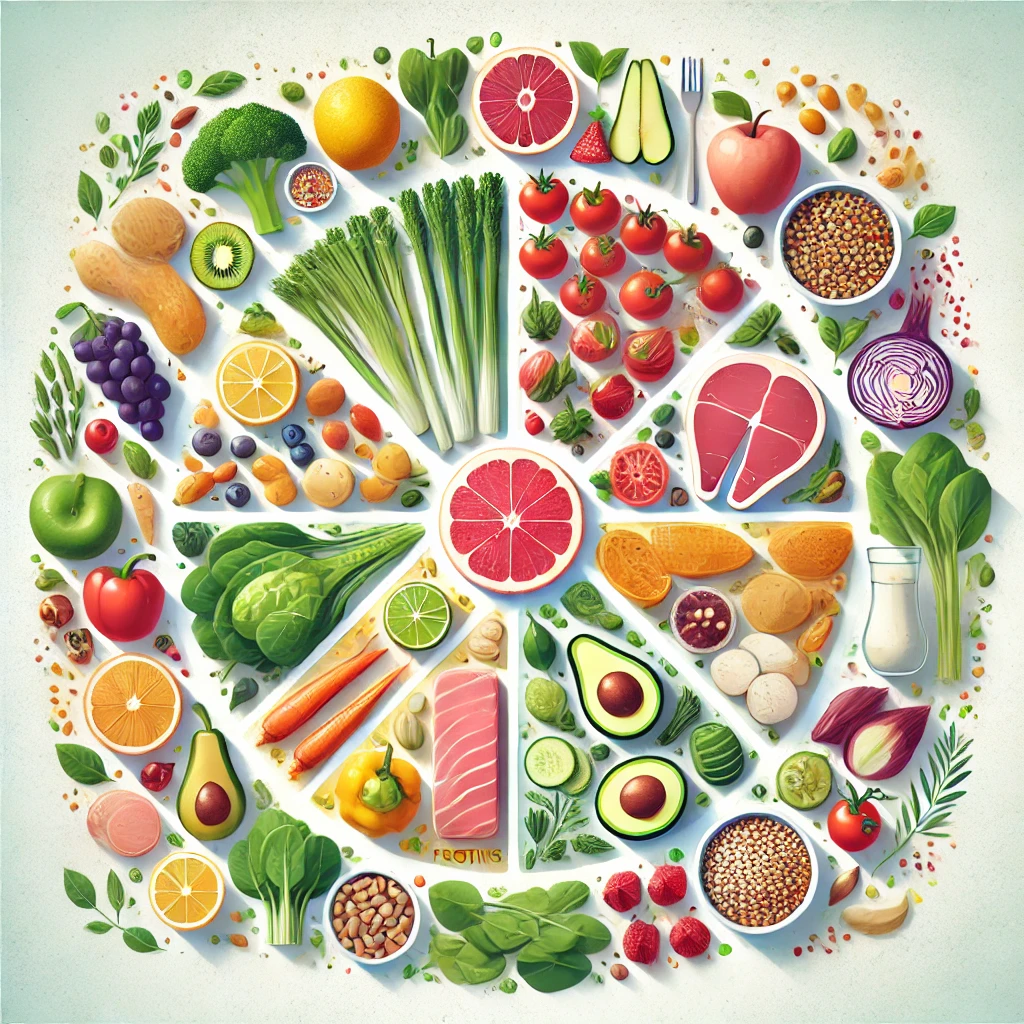
How to Create a Balanced Meal Plan for Optimal Health
The Importance of a Balanced Meal Plan
Creating a balanced meal plan isn't just about eating healthy; it's about achieving harmony between your body's nutritional needs and your lifestyle. Whether you're aiming for weight loss, improving your mental health, or boosting your fitness, a well-planned diet can make all the difference. Let's dive into how you can design a meal plan that supports your fitness journey, provides energy for your workouts, and promotes mental wellness.
Key Components of a Balanced Meal Plan
1. Protein: The Building Block
Protein is essential for building and repairing muscles, especially if you're into strength training or home workouts. Think of it as the cement that holds the bricks together in the structure of your fitness goals. Chicken, fish, tofu, and legumes are fantastic sources to include in your diet.
2. Carbohydrates: Fuel for Energy
Carbs are the fuel your body needs to power through cardio workouts and daily activities. But not all carbs are created equal. Whole grains, fruits, and vegetables should be your go-to options. Think of them as the gas that keeps your engine running smoothly.
3. Fats: The Essential Nutrient
Fats are crucial for brain health, hormone regulation, and overall wellness. Incorporating healthy fats from sources like avocados, nuts, and olive oil will keep you feeling satisfied and energized throughout the day.
Tips for Designing a Meal Plan That Supports Your Goals
1. Know Your Caloric Needs
Understanding how many calories you should be consuming daily is fundamental for weight loss or muscle gain. Use online calculators or consult with a nutritionist to figure out what works for your body.
2. Portion Control: The Secret to Success
Even when eating healthy, portion control is crucial. Sometimes, it's not about what you eat but how much. Keep your portions in check to avoid overeating, even if you're enjoying quick weight loss recipes.
3. Plan Your Meals Ahead of Time
Meal prepping can save you time and reduce the temptation to grab unhealthy snacks. Spend some time each week planning your meals and snacks. That way, you're always prepared and can avoid those impulsive, unhealthy choices.
How to Incorporate Fitness Tips into Your Meal Plan
1. Pair Protein with Your Workout Routine
To maximize your strength training efforts, make sure you're getting enough protein before and after your workouts. A post-workout snack like a protein shake or a piece of grilled chicken with veggies will help rebuild muscles and speed up recovery.
2. Don't Skip Carbs Before Cardio
If you're about to tackle a cardio workout, make sure you've had a small meal with carbs beforehand. This will give you the energy you need to power through a long jog or cycling session.
3. Hydration is Key
No meal plan is complete without hydration. Drink plenty of water throughout the day, and consider adding electrolytes if you're engaging in intense cardio workouts.
Healthy Recipes for a Balanced Meal Plan
Quick Weight Loss Recipes
Looking for something quick and healthy? Try a zesty chicken and quinoa salad with avocado and lime. It’s full of lean protein, healthy fats, and fiber to keep you full and energized.
Easy Yoga for Beginners Meals
If you're new to yoga, consider meals that are easy on the stomach and provide long-lasting energy, like a simple fruit smoothie with chia seeds and almond butter. This will fuel your body for your yoga session while keeping you light and energized.
Integrating Mindfulness Practices Into Your Meal Planning
1. Eat Mindfully
Mindfulness isn't just for meditation; it can help you develop a healthier relationship with food. Slow down and savor every bite. This will help you tune in to your body's hunger and fullness signals and prevent overeating.
2. Stress-Free Eating
Eating while stressed can lead to overeating and poor digestion. Make an effort to eat in a calm, peaceful environment. Consider pairing your meal with mindfulness practices like deep breathing or listening to soothing music.
How a Balanced Meal Plan Enhances Mental Health & Wellness
Your diet plays a significant role in how you feel emotionally. Foods rich in omega-3 fatty acids, like salmon and walnuts, can help fight depression and anxiety. Whole grains, leafy greens, and healthy fats can also boost your mood and reduce stress. So, what you eat can directly impact your mental health.
Fitness Gear Reviews: Tools to Make Meal Prep Easier
Some gadgets can make meal prepping and cooking healthier meals a breeze. From high-quality blenders for smoothies to air fryers for quick, oil-free cooking, the right fitness gear can elevate your kitchen game and streamline your efforts to stay healthy.
Creating a Healthy Lifestyle Through Your Meal Plan
1. Prioritize Whole Foods
For the best health outcomes, focus on whole, unprocessed foods. Your body will thank you for it with improved energy levels, better digestion, and faster recovery from workouts.
2. Balance is the Key
It's not about restriction but rather balance. Yes, treat yourself occasionally, but don't let unhealthy indulgences dominate your diet. The 80/20 rule works great here—80% healthy, 20% indulgence.